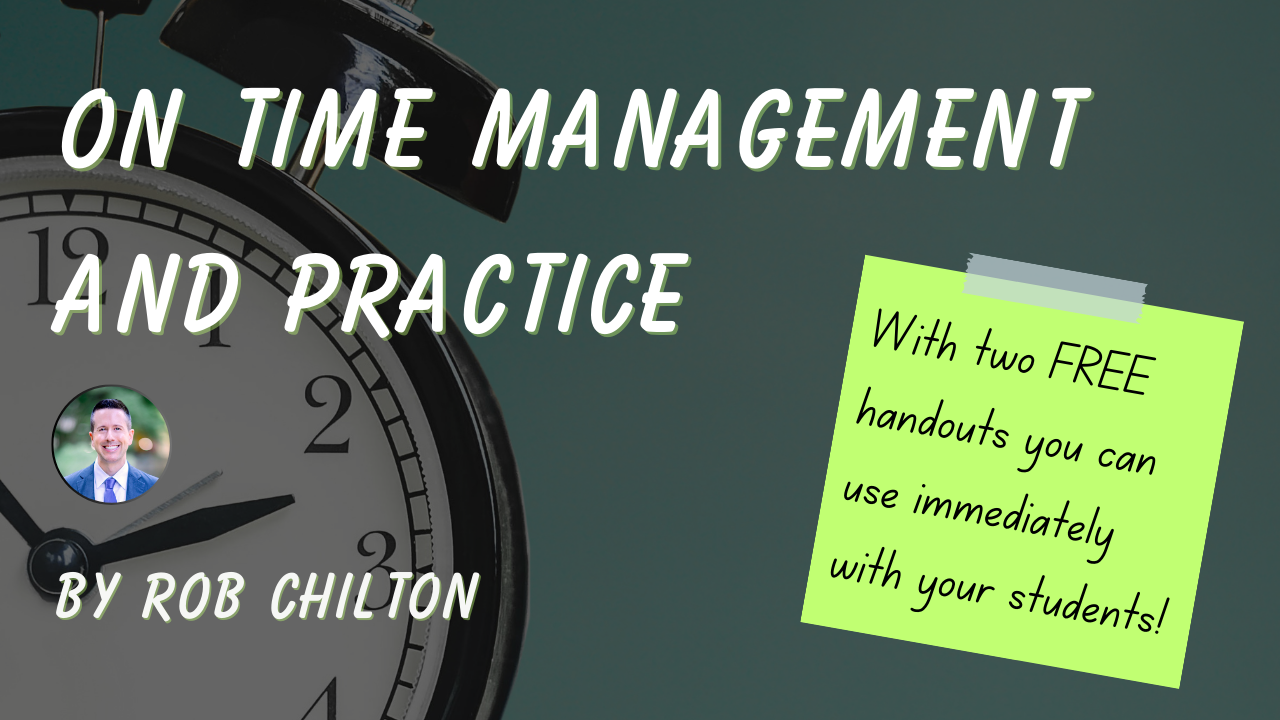5 Problems of Work-Life Balance
Jul 01, 2025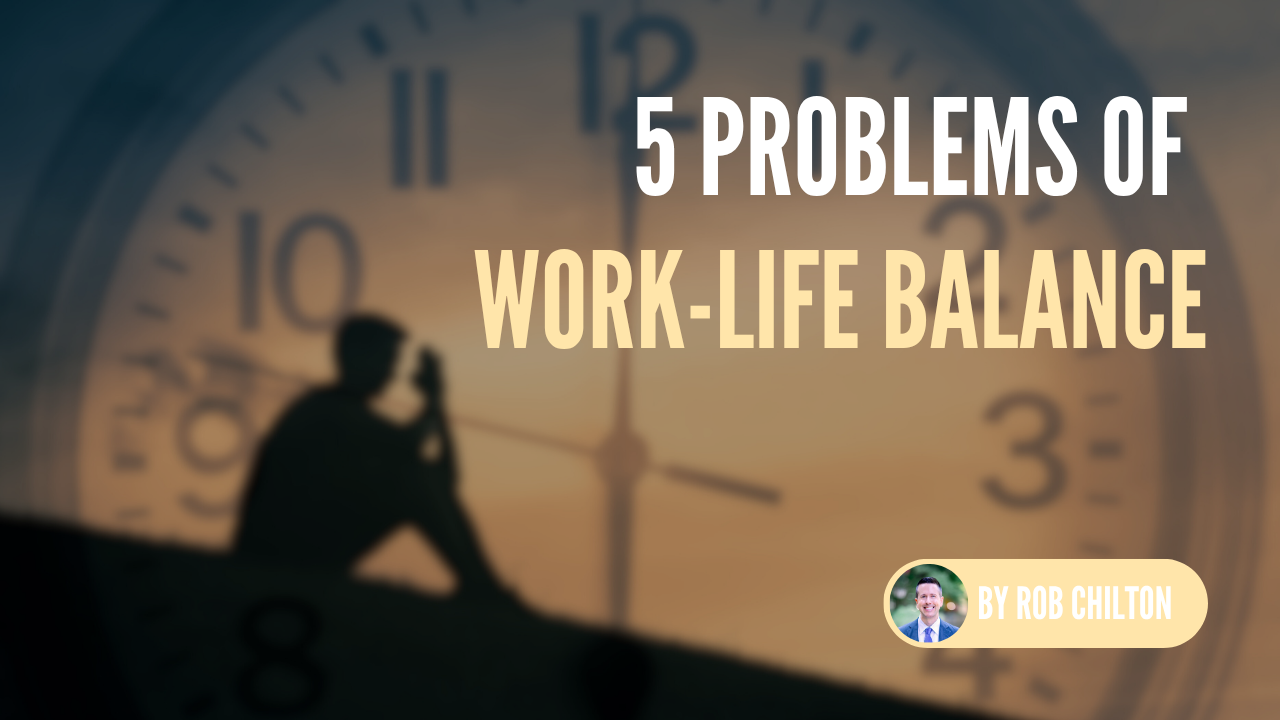
Estimated Read Time: 5 minutes
By Rob Chilton
Work-life balance.
This is a topic I’ve wanted to write about for some time—but haven’t. Maybe that’s because I haven’t figured it out yet. I keep thinking I can sleep less, get more done, be more present at home, and somehow maintain it all in a state of effortless, perpetual motion. Unfortunately, that perfect flow state doesn’t exist. Here are five problems I’ve been contemplating lately about work-life balance.
Problem #1: 24 Hours Isn’t Enough
I’m continually grappling with the fact that there are only 24 hours in a day—it just isn’t enough. That aside, these limited hours can be divided into three basic categories: work, home, and sleep—roughly eight hours of each per day, not counting weekends or holidays.
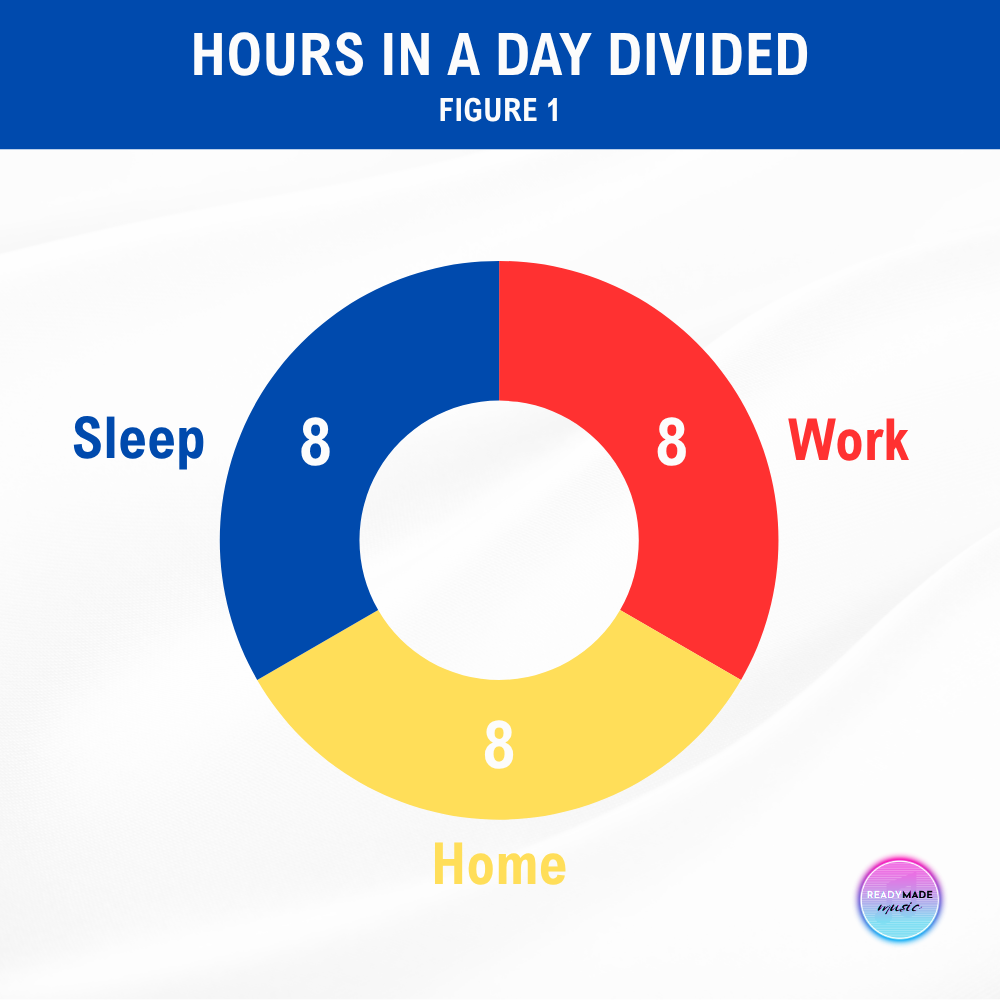
The problem is, many teachers I know are physically on campus 9-10 hours a day—often arriving an hour early and staying an hour late. Add commuting time, and it's not uncommon for one to spend around 10-11 hours a day away from home—and those extra hours aren’t free.
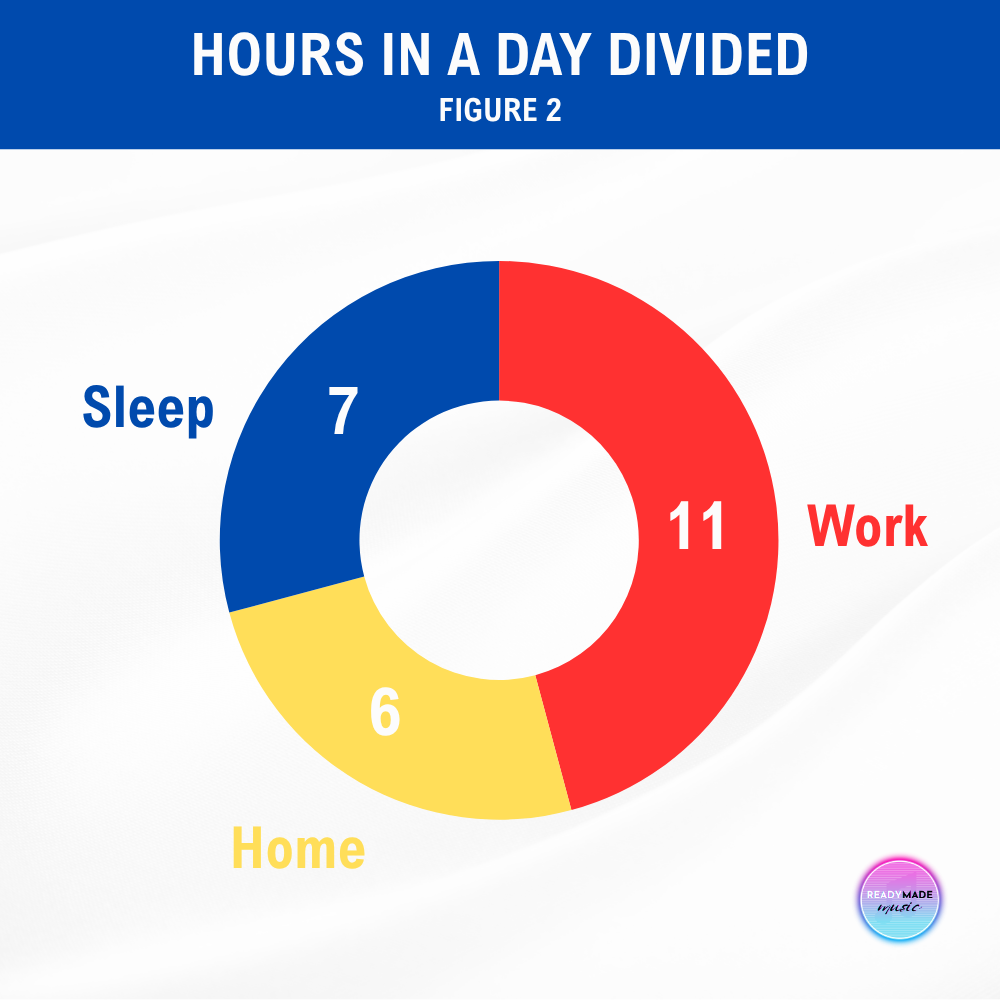
While the ratios in Figure 2 are less than ideal, they don’t fully explain the issue. Perhaps there is more to unpack?
Problem #2: Our Phones Siphon Time
Have you ever picked up your phone to check something—only to regain consciousness 17 minutes later? Let me ask you two honest questions:
- How often do you check your phone during the day? For me, it depends on whether I’m engaged in deep work or a monotonous task, but the answer is still: too much. According to various reports, people check their phones on average 144 times per day, or approximately every 10 minutes.
- How long is each phone-check? It varies, but the available data suggests that the average phone-check lasts about 1 minute and 30 seconds—with some just quick glances and others longer scrolls.
Now consider this: If we check our devices 144 times a day, and each session lasts 90 seconds, that adds up to 3 hours and 36 minutes a day just phone-checking. That’s absurd, at least in my opinion, and I’m willing to bet that for many of us that number is even higher. But—just for argument’s sake—let's stick with the average data and assume that a little over half of that screen time happens outside of work, cutting into our home time and/or sleep. How does that affect our distribution of time?
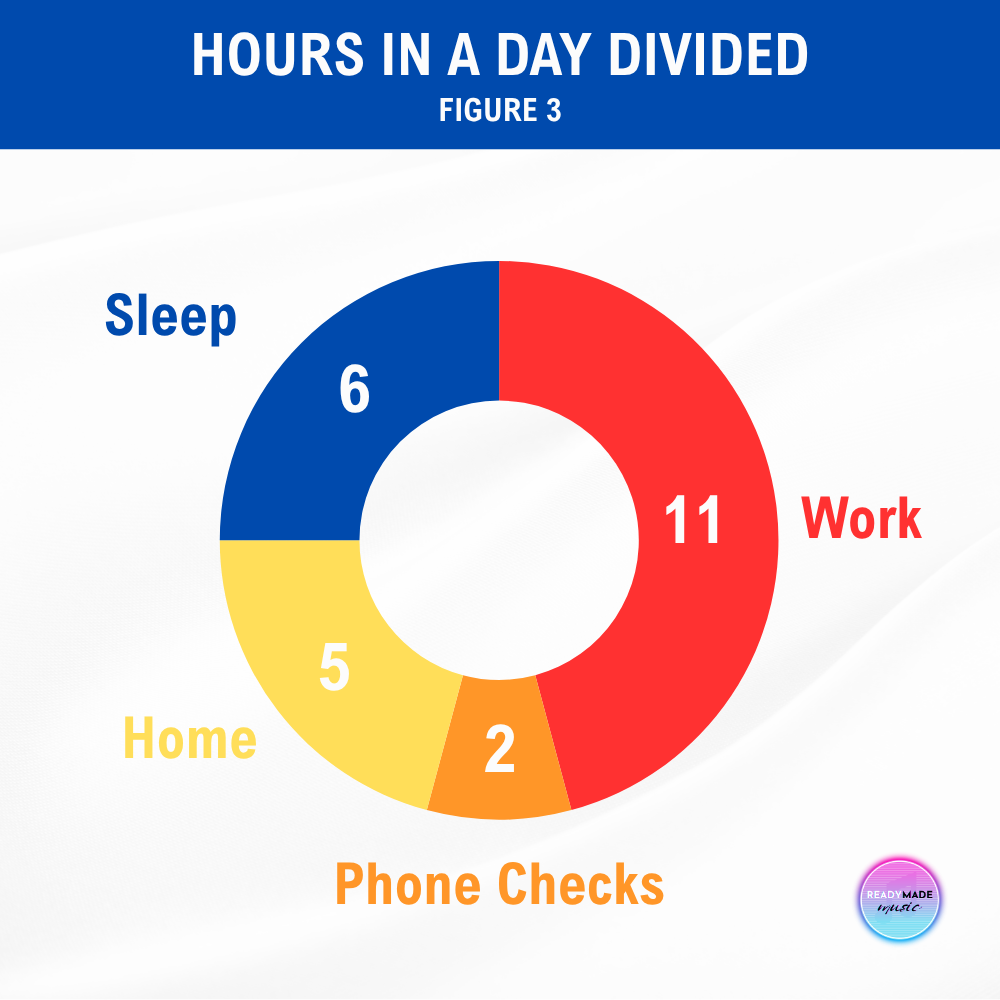
Two hours may not seem like much—until you multiply it by seven. That’s 14 hours each week lost in cyberspace. And when that time comes at the expense of being present at home or getting enough sleep, it raises an important question: shouldn’t we redirect some of that time towards more meaningful or fulfilling activities?
Problem #3: Home Time & Downtime are Not Always the Same
Have you ever wished you could pause time so you could get everything done and still have time leftover for yourself? In talking with others about work-life balance, I often hear what they really want—myself included—is more downtime. Not just time off work, but true personal time to rest or recharge, read a book, go for a walk, work out, watch a show, or dive into a hobby.
The problem is, life at home comes with its own to-do list—and that list often grows as you move through middle adulthood and take on more responsibilities. Meals need cooking, dishes need washing, laundry needs folding, and families and children need attention. These everyday responsibilities—although undeniably important—can quickly crowd out our personal time, leaving us feeling like we have none for ourselves.
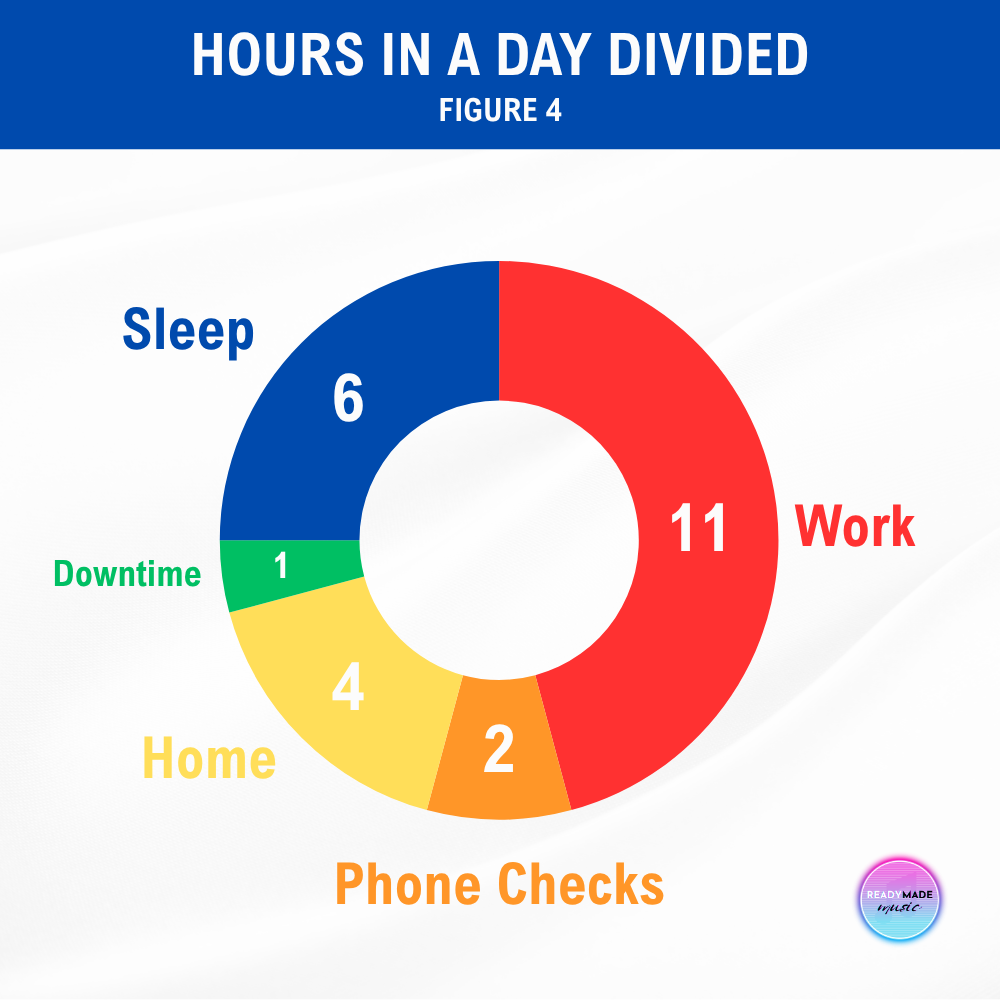
Making room for downtime isn’t always easy, but it’s necessary. Personally, when everything feels too busy—as it often does—the first thing I blame is my work. But I’m beginning to believe the real issue isn’t just work. Perhaps it’s everything, everywhere—filling our schedules and crowding out our personal time. I don’t say this to dismiss work as a factor, but to consider that the problem may be more nuanced—especially as we age and our responsibilities grow.
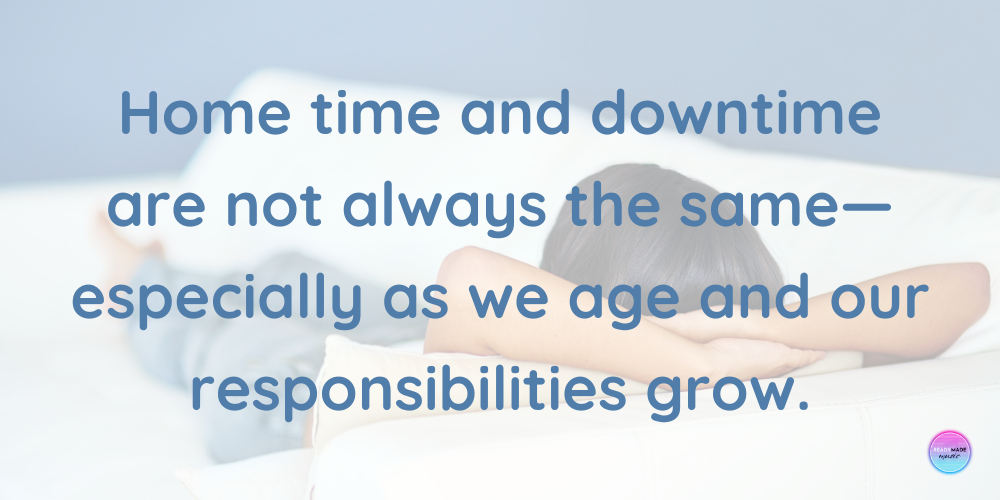
Problem #4: We Say “Yes” Too Often
For various reasons, most of us say “yes” more often than we should. We say yes to avoid disappointing others, to be helpful, to be liked, or to avoid conflict. Other times, we’re just trying to be polite. The problem is, we often overestimate how much time we’ll have in the future, which can quickly lead to fatigue, resentment, and burnout. Time is finite and every yes to one thing is a no to everything else we could have done with that time—including rest and recharging. Finding balance is about saying yes more selectively.
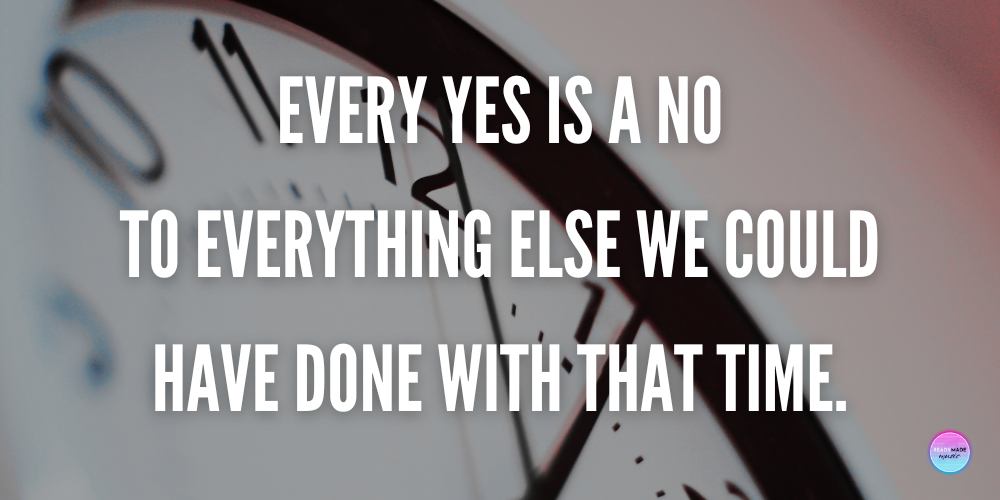
That having been said, if you’re a young teacher just starting out, and perhaps without a family of your own, saying yes more often to things like attending outside professional development sessions, helping with beginner instrument fittings, and judging solo contests can accelerate your growth and learning—and are great networking opportunities. For many, this early career phase is the optimal window to say yes to these activities.
Looking for a resource that can help create balance at work?
Problem #5: There’s No Shortage of Work & Work Expands to Fill Time
Something that took me a long time to understand and accept is that there will always be more to do—and your work, chores, and responsibilities will expand to fill your available time.
First, there’s no shortage of things to do. Go looking for a task and you’ll find one. Second, we often adjust our pacing based on our available time. For example, if you have all day to reorganize a closet or garage, you’re more likely to pick things up, inspect them, and even explore various ways to reorganize them. But if you only have two hours, your goal becomes urgently creating order from chaos, with no time for exploration.
I’m not saying we should only work under strict time constraints, or skip exploration and creativity in our daily lives. Rather, I’m suggesting we should remain mindful of our time and maintain a sense of urgency when efficiency is the goal. Some tasks simply need completion—not perfection.

Finding Balance: The Journey is Personal
On the edge of burnout and seeking advice, someone once told me there’s no such thing as work-life balance—it’s all just balance. At the time, I didn’t have much enthusiasm for this idea. To be honest, I was hoping for a reassuring response affirming that work was indeed my problem. It took me several years of reflection to understand that perhaps they were right—life might just be a singular balancing act. We each have our own responsibilities, commitments, obstacles, and hardships which shape or even dictate how we spend our time. Like a game of poker, we’re all dealt different cards—at different times. Finding the right balance is a personal journey.
Final Thought: Pacing is Key
Finally, I’ll leave you with this: Whenever I’m overwhelmed, I’m reminded of something my friend Evan Fletcher—band director in Argyle, Texas—said to me on many occasions: It’s a marathon, not a sprint. Remember to pace yourself.

Stay tuned as I plan to discuss solutions for achieving better balance such as:
- Finding or choosing priorities
- Building routines to promote balance
- Organizational methods that promote efficiency
- Managing life when there’s too much on your plate
- Understanding and overcoming burnout
Suggested reading:
Never miss a new posting!
Check out this short video!
About the author:

Rob Chilton is the creator and owner of Readymade Music, LLC and its content. Previously, Chilton was a middle school band director from 2007-2021. His most recent teaching position was the Head Band Director at Killian Middle School in Lewisville, Texas from 2014-2021.
Under his direction, the Killian Honors Band was named the 2018 Texas Music Educators Association CC Honor Band and performed at the annual 2018 TMEA Clinic/Convention. In 2019, the Killian Honors Band was invited to and performed at The Midwest Clinic in Chicago. Additionally, the Killian Honors Band was named a National Winner in the Mark of Excellence National Wind Band Honors Project in 2015, 2016, 2017, 2018, and 2019.
Chilton is a graduate of Southern Methodist University where he had the opportunity to study music education under the tutelage of Lynne Jackson and Brian Merrill. During his years as a middle school band director, Chilton continued his professional growth under the guidance of his primary clinicians, John Benzer and Brian Merrill.
Chilton’s mission for Readymade Music is to promote the overall well-being of music education and support school music teachers by providing solutions to help make teaching music more efficient and inspirational while increasing engagement for 21st century learners.

© 2025 Readymade Music, LLC
All rights reserved.
The unauthorized distribution and/or reproduction of this work is illegal.


